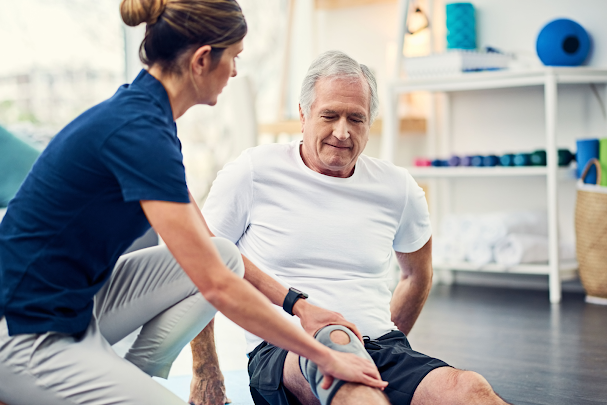TIRED OF YOUR HIP AND KNEE PAIN? FIND LASTING RELIEF WITH PHYSICAL THERAPY
Hip and knee pain can be a frustrating and debilitating experience. It can impact your ability to carry out daily tasks, work, and participate in the activities you enjoy. Physical therapy could provide lasting relief if you tired of living with hip and knee pain.
Physical therapy is a non-invasive, drug-free approach to managing hip and knee pain. It involves a combination of exercises, stretches, and manual techniques to improve the affected joints' mobility, strength, and flexibility.
Here are some ways that physical therapy can help alleviate hip and knee pain.
1. Reducing Inflammation
Inflammation is often the root cause of hip and knee pain. Physical therapy can help reduce inflammation by increasing blood flow to the affected area. This helps to flush out toxins and promote healing.
2. Restoring Mobility
Hip and knee pain can cause stiffness and limited mobility. Physical therapy helps to restore joint mobility through targeted exercises and stretches. This can help to reduce pain and improve your ability to move comfortably.
3.Strengthening Muscles
Weak muscles can contribute to hip and knee pain. Physical therapy focuses on strengthening the muscles around the affected joint to provide better support and stability. This can help to reduce pain and prevent further injury.
4. Improving Flexibility
Limited flexibility can make hip and knee pain worse. Physical therapy incorporates stretching exercises to improve joint flexibility. This can help to reduce pain and improve your range of motion.
5. Enhancing Balance and Coordination
Balance and coordination are essential for good joint health. Physical therapy includes exercises to improve balance and coordination. This can help to prevent falls and reduce the risk of further injury.
Physical therapy is a personalized approach to managing hip and knee pain. Your physical therapist will work with you to develop a customized treatment plan based on your unique needs and goals. They will monitor your progress and adjust your treatment as needed to ensure that you achieve lasting relief from your pain.
Causes and symptoms of knee and hip pain
A variety of injuries and diseases can cause knee pain. Auto accidents, recreational activities, sports, or a slip and fall can cause it. The following are the most common causes of knee pain:
Osteoarthritis
Anterior injuries
Ligament strains and sprains
Overuse
Gout
Fractures around the knee
Problems with the hip joint can result in pain in the groin or inside the hip. The pain outside the hip is typically due to issues with tendons, muscles, and ligaments surrounding the hip joint. Hip pain can also be due to the following:
Osteoarthritis
Rheumatoid arthritis
Hip fracture
Sciatica
Sprains
Bursitis
How Physical Therapy Can Help With Hip and Knee Pain
A physical therapist will perform a gait evaluation, palpation, range of motion measurements, and function mobility tests to determine a treatment plan for your hip or knee pain.
Different modalities, such as heat and ice therapy, ultrasound, and specific exercises, may be included in your treatment plan. Joint mobilization techniques used by a physical therapist have been shown in studies to help with both long-term and short-term hip pain. There is usually an improvement in mobility as well.
Physical Therapy for knee pain in Michigan
If you're suffering from hip or knee pain, make an appointment with one of our physical therapists. We can assist you in removing your pain so that you can resume your normal activities. We've helped many others with hip and knee pain and can also help you. We will assist you in living a pain-free life.
FAQs
How Does Physical Therapy Help with Everyday Pain?
You may experience pain relief while at the physical therapist and undergoing treatment, but what about when you return home? Your physical therapist's primary goal is to heal your injuries over time. The exercises and remedies they use with you will gradually improve your condition, resulting in less pain daily. As your body grows more robust and mobile, you should feel less pain in your hips and knees.
Should I Stop Taking Painkillers?
If your doctor has prescribed pain relievers, it is best to follow their instructions. You are, however, welcome to discuss physical therapy with your doctor. If your pain level has decreased due to physical therapy, you can talk to your doctor about reducing your pain reliever usage.






Comments
Post a Comment